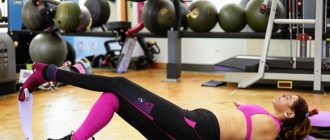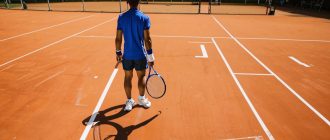Our nutrition is the foundation and basis of our health. That is why it is important to monitor not only what we eat and when we eat, but also the quality of the food on our table and how it was prepared. Nutrition in physical activity should be balanced and timely, it is very important to pay attention to what the athlete consumes before and after training, in no case should not come to training hungry.
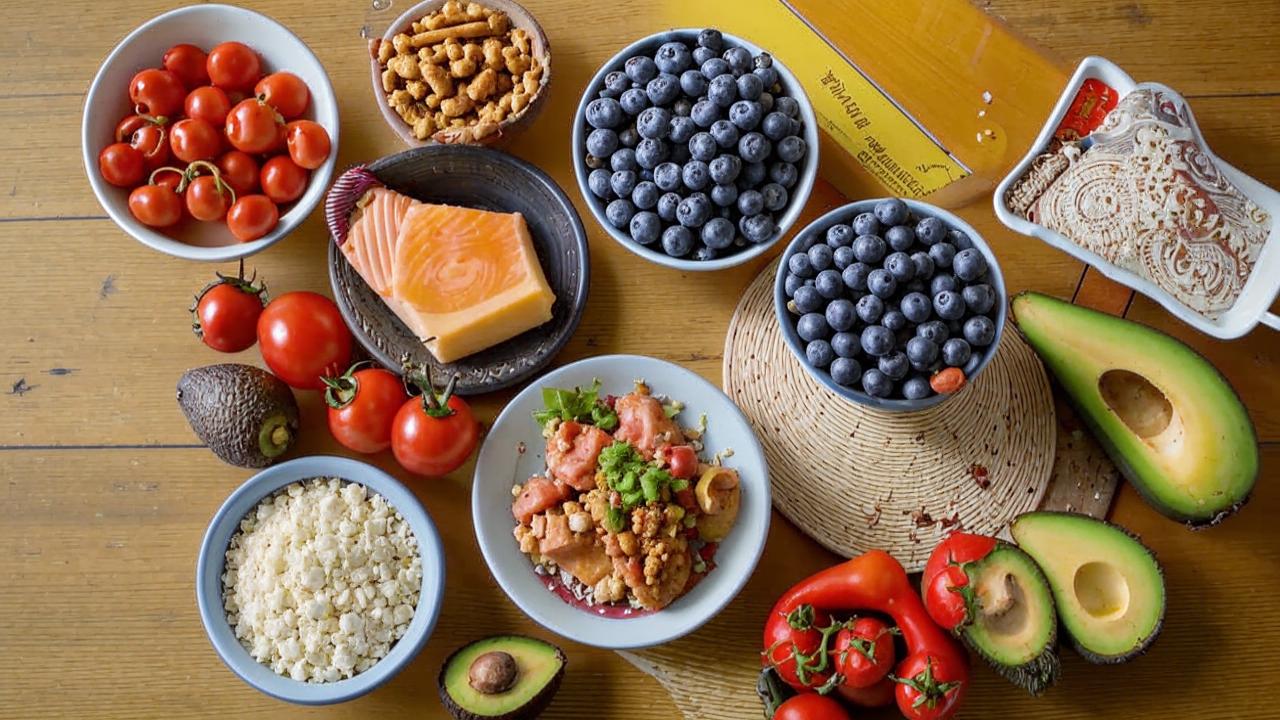
Basic rules. What is the basis of nutrition?
The most important thing to know about nutrition for people who are engaged in sports is that muscle growth is possible only if the number of calories consumed with food will exceed the number of calories expended during training. Otherwise, your body will inevitably start the reverse process – with a lack of calories, your body will draw from the muscle mass you already have, which can lead to exhaustion.
Here are just a few activities and the number of calories you’ll burn during an hour of intense work:
Boxing – 420 kcal
Bodyflex – 350 kcal
Judo, karate, jujitsu – 350 kcal
Cycling (15 km/h) – 161 kcal
Rollerblading – 420 kcal
Swimming – 105 to 230 kcal (depending on speed)
Squash – 259 kcal
Tennis – 245 kcal
Ski training – 385 kcal
Fencing – 105 kcal
Soccer – 315 kcal
Walking (6 km/h) – 156 kcal.
Remember that even the most seemingly insignificant activity like cleaning or walking to the subway also requires energy expenditure, and therefore burns calories.
For a full metabolism, you need to drink enough fluids. Under the influence of fluids, fiber in the intestine actively swells and stimulates digestive processes.
With a lack of calories, the effect of training will be very low, which will lead to a loss of strength and reduce the effectiveness of training in the gym. Therefore, if you decide to exercise regularly, you need to switch to a special sports diet.

The diet itself depends largely on the type of sport you prefer to do, and the degree of your training. Professional athletes have a special dietary regimen, which is selected by nutritionists. In our material we will consider the diet, which nutritionists and nutritionists of Just 4 You delivery service have developed specifically for triathletes, it will also suit all amateur athletes and people who lead an active lifestyle.
Useful and simple
Nutrition is the fuel we need to keep us moving. At the very beginning of our experiment, we wondered if there were ready-made sports nutrition with already calculated calories available online. The question may seem naive and trivial, but the fact is that most food delivery services offer diets either for weight loss or for weight retention (within the range of 1300-2000 kcal), which is negligible for a person who is actively working out in the gym. On the Just 4 Food website, we found specialized nutrition for triathletes. A 2500 kcal diet for women and a 3500 kcal diet for men. Let’s take a closer look at the main foods and meals used to create this specialized menu.
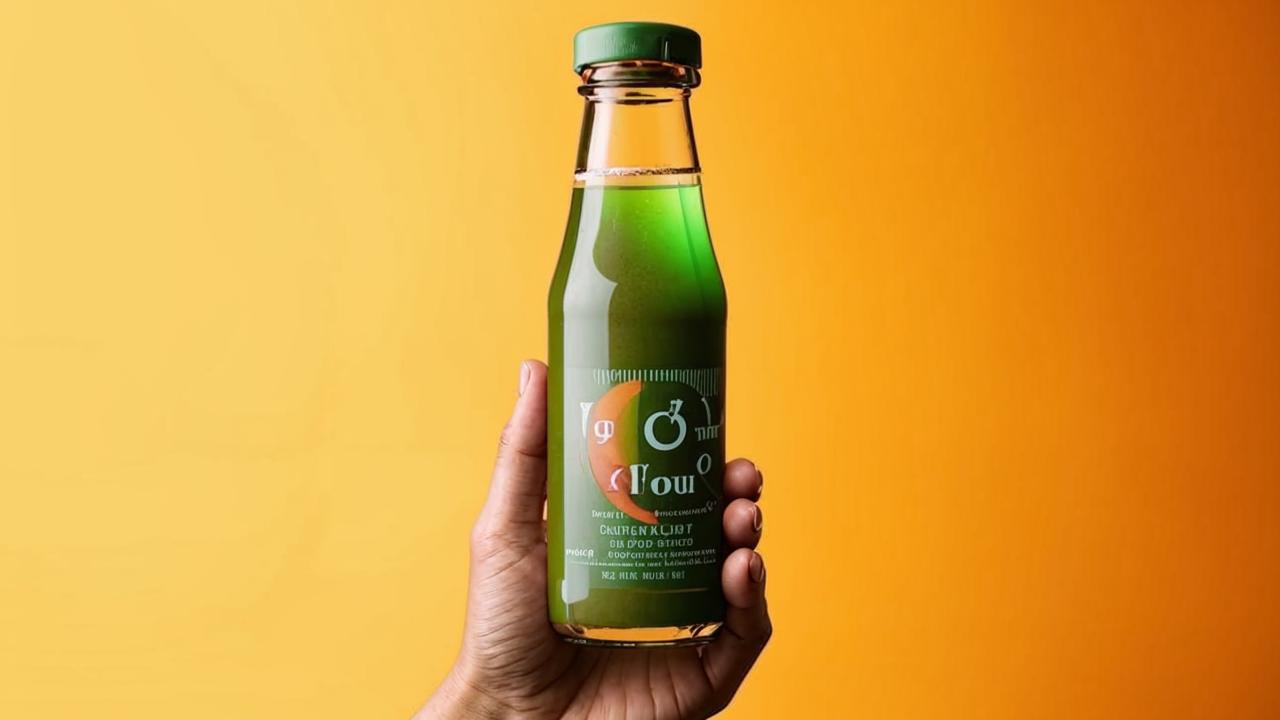
Smoothies. A quick, easy and nutritious snack. During the test of the triathlon program from the Just 4 Food nutrition service, we were offered a smoothie twice. The first time was a drink of spinach, pineapple, mango and spring water with baobab protein, and the second time was a drink of grapes, blackberries, mint and coconut water. Both drinks were packed with natural vitamins due to the quality and natural ingredients in their base. When preparing a smoothie, take into account that the fruit should be ripe or even slightly overripe, then the drink will turn out more sweet and thick in its consistency.
How to prepare the drink yourself? Smoothies are prepared from fruits, berries or vegetables on the basis of kefir, yogurt, milk or water. You can add honey to the smoothie for sweetness or nuts for nutrition. When using apples or pears, they should be grated first, and then prepare the drink from them.
Vegetable salad. Another basic dish that should definitely be present in the diet of an athlete. Vegetables contain a huge amount of vitamins and microelements. In the diet of a triathlete, developed by professional nutritionists and nutritionists, too, not without a salad of red cabbage, carrots, avocado, corn kernels and sprouts.
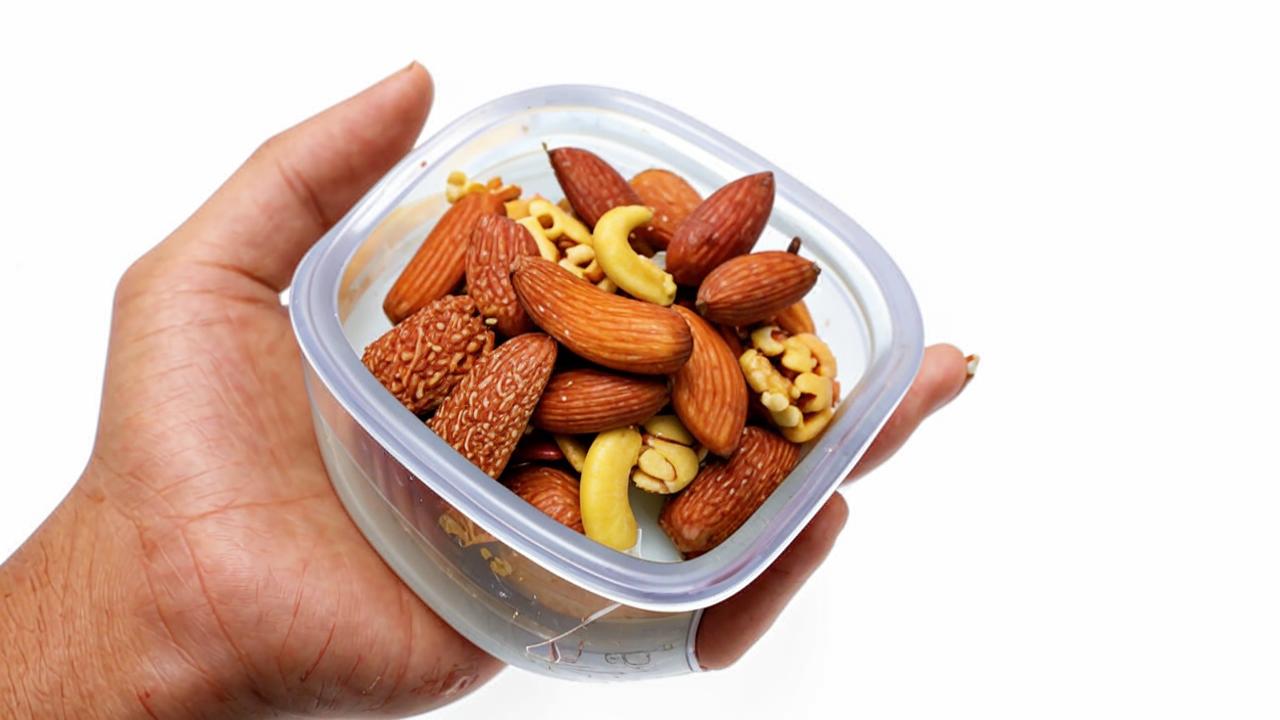
Dried fruits and nuts. Good and long satisfy hunger. But you should eat them in small portions, because they are very caloric. Dried fruits are suitable for absolutely any – prunes, apricots, raisins, apples, pears. Of nuts it is better to give preference to almonds, pistachios and hazelnuts.
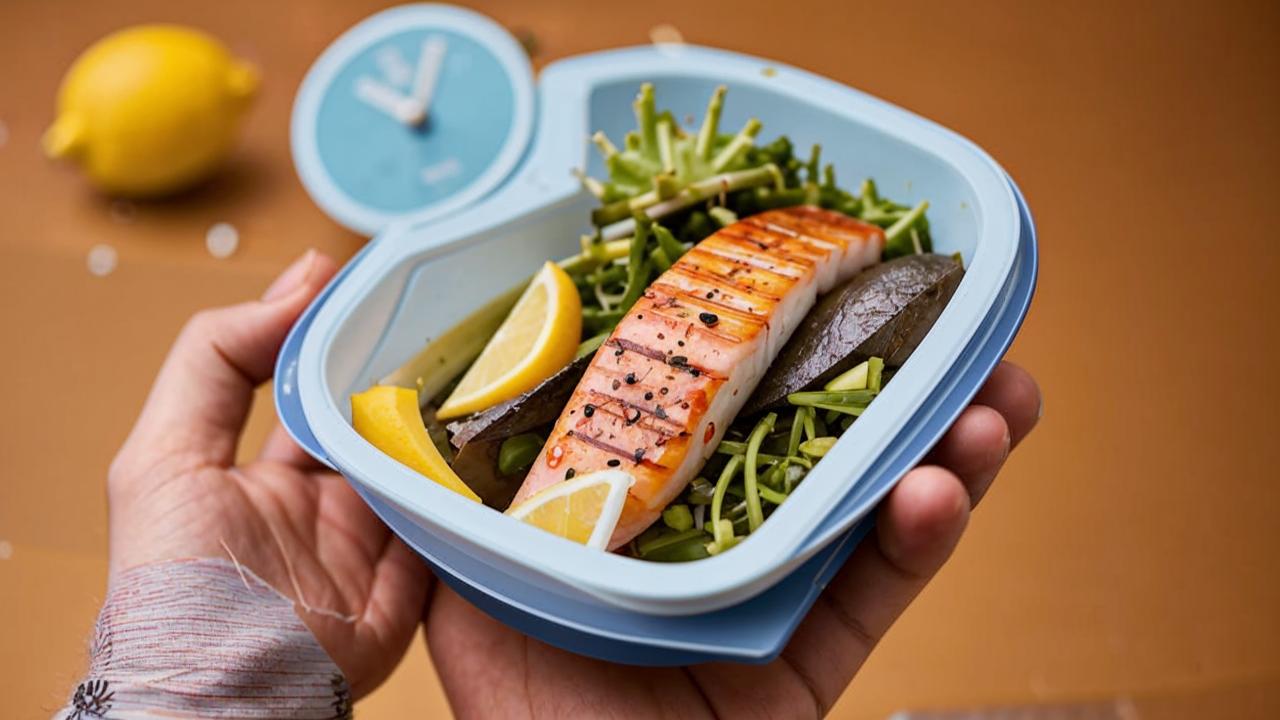
Sources of protein. Meat, chicken, fish and seafood in the athlete’s diet are mandatory. What to give preference to, it is already a matter of taste of everyone. In any case, if you are engaged in sports, you should not exclude protein sources from your daily meals. If you are a vegetarian, you should replace animal proteins with vegetable proteins in order to compensate the body for the energy spent.
The hardest part
The hardest part of the sports approach to nutrition for me turned out to be eating by the hour. I feel that if I didn’t have boxes on which the time of meals was written in very large letters, I would have fallen behind schedule on the first day of my transition to the “bright side”. It just so happens that in order for the body not to experience the agonizing feeling of hunger, we need to try to avoid intervals in eating more than three hours.
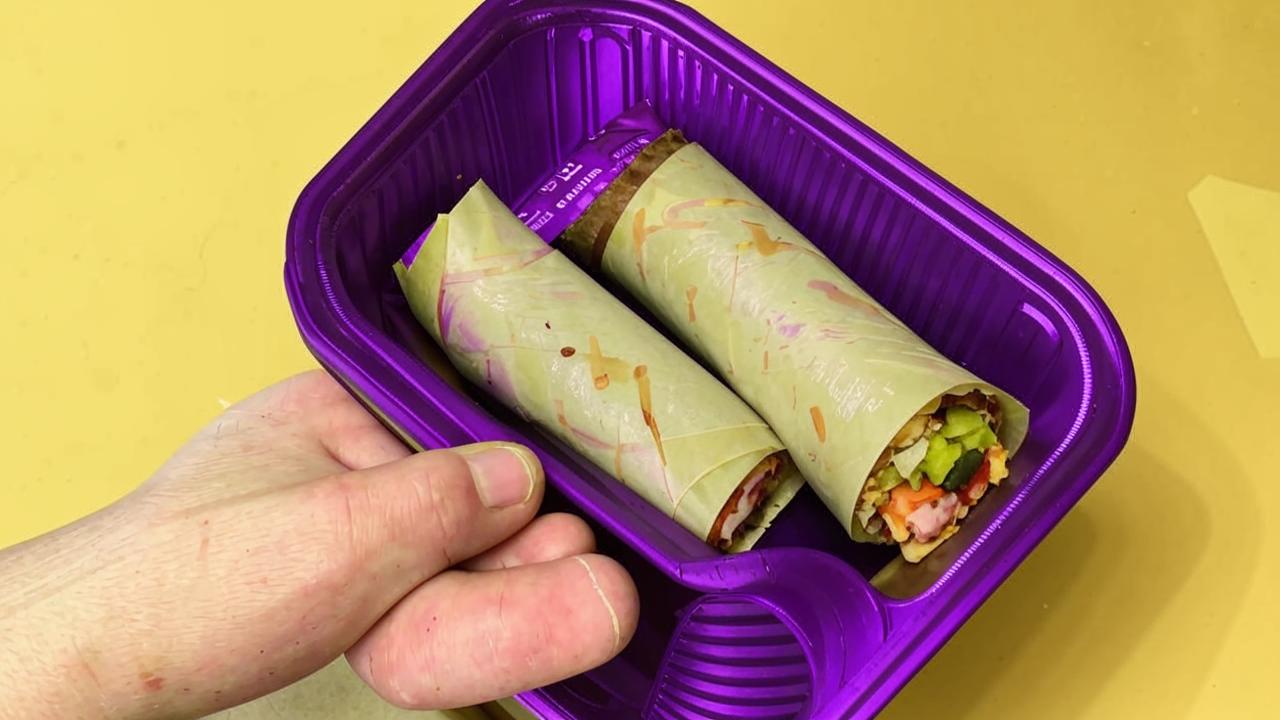
Tip: at first, in order to get used to eating at the right intervals, prepare food in advance or try using a meal delivery service.
Sample diet when exercising
The nutrition program we tested is called Triathlon, which is a diet specifically designed by nutritionists and chefs with all the needs of athletes in mind. The main goals that formed the basis of the menu development are the need for triathletes to maintain a stable weight and metabolism, as well as to recover after hours of training.
It is quite reasonable that without proper nutrition it is impossible to get your muscles and body in order.
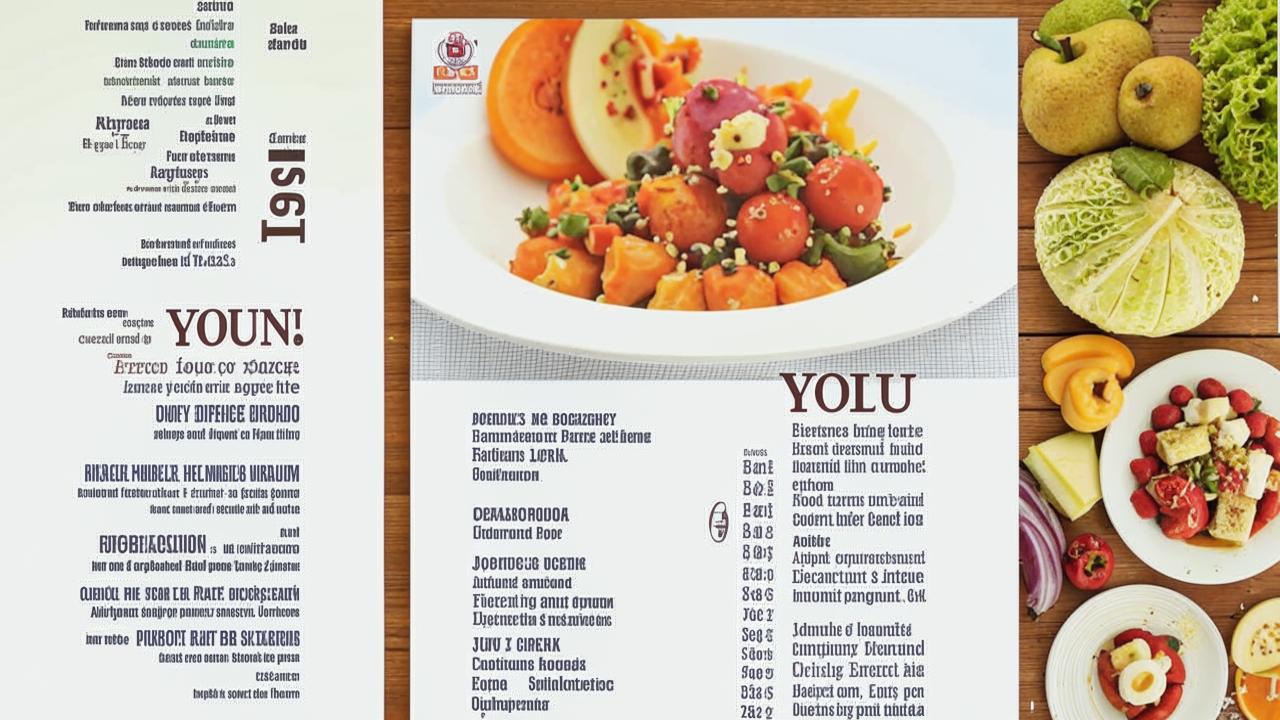
Diet for 2500 kcal
Approximate nutrition plan for an athlete for one day:
8:00 – 8:30
Spinach, pineapple, mango and spring water smoothie with baobab protein – 112.9 kcal.
Spelt porridge with figs and poppy seeds – 178,67 kcal.
Blueberry – 58,5 kcal
Flower pollen – 16,98 kcal
Tortilla with yams and cilantro – 138,71 kcal.
11:00 – 11:30
Poached egg with tomatoes and greens – 124,09 kcal.
Spelt bun – 100,98 kcal
Baked yams with rosemary – 143,19 kcal.
Smoothie made of grapes, blackberries with mint and coconut water – 124,76 kcal.
14:00-15:00
Salad with red cabbage, carrots, avocado, corn kernels and sprouts – 76,91 kcal
Cucumber sauce – 31,05 kcal.
Light minestrone soup – 77,99 kcal.
Lamb loin with fresh ginger and herbs – 117,1 kcal
Red beans with vegetables and lentil sprouts – 144,21 kcal
Bread with prebiotics – 81,9 kcal.
17:00 – 17:30
Spelt macaroni and cheese – 238,67 kcal.
Berry sour cream – 112,34 kcal.
Oatmeal cookies with pumpkin and honey – 234,77 kcal
19:30 – 20:30
King prawns in herbs – 143,38 kcal
Vegetables with green peas – 69,18 kcal.
22:00
Kefir with goji berries – 170,92 kcal.




